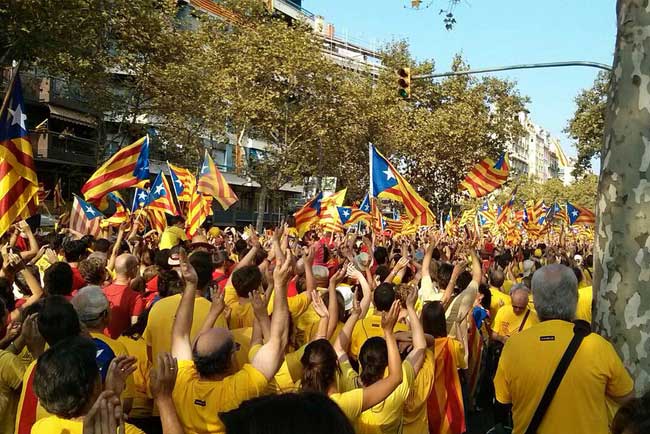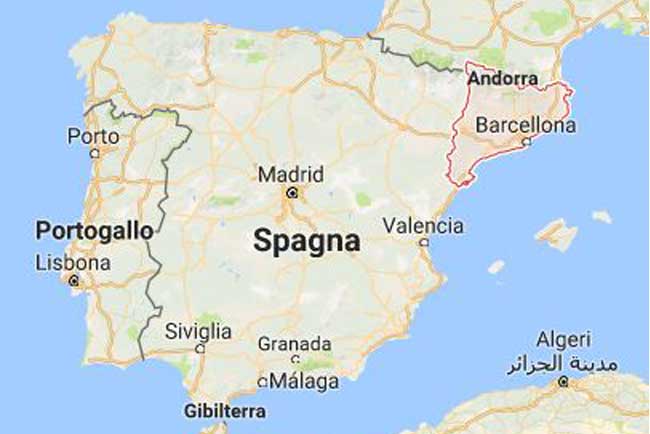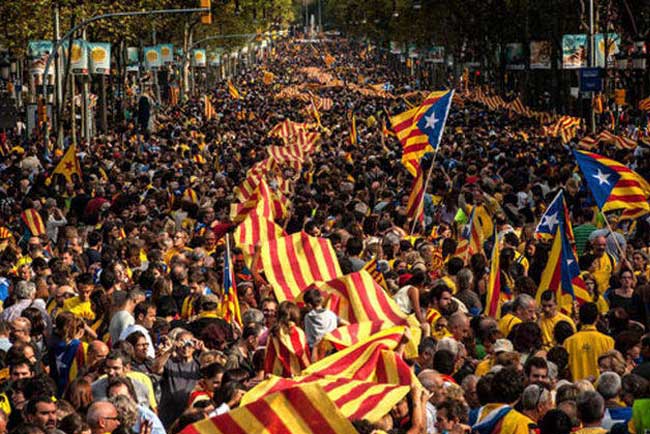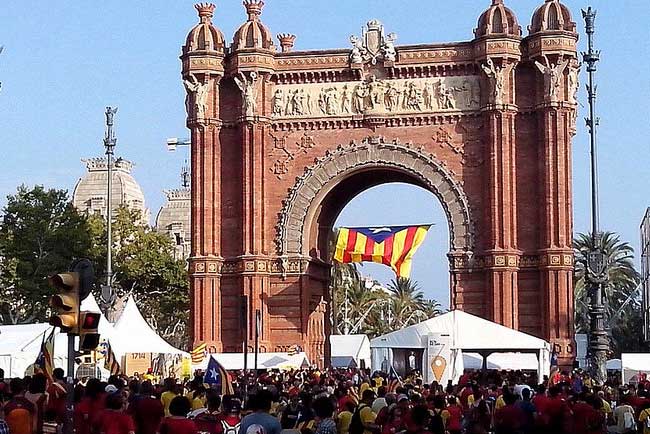Online bookings
24 hours a day
0044 (0) 20 3239 1595
English Phone
Mon-Fri: 8-16:00 GMT
Customer Service
When travelling, it is important to know the history of the place you are visiting. This knowledge enables a better adaptation to the local lifestyle and a useful understanding of the inhabitants' customs. If you come to Barcelona as a tourist or decide to live in the city, you will want to know a little about Catalonia, the region that has always fought for independence and reminds everyone of this every September 11th with the celebration of the Diada.

Catalans are a very special group of people: strongly attached to their traditions and at the same time open to innovation and creativity. At times they are "closed" and seem to be afraid (or angry) with the foreigner, at other times they are open and welcoming as few know how to be. Perhaps the reason for this passionate nature is a past of great suffering, but it is necessary to know how Catalonia was formed and to go back to the year 768 AD. From that moment until the 814 AD the Carolingian Empire (more or less present-day France) controlled a "line" of land in the surroundings of the Pyrenees, very strategic to defend itself from the Arabs, who at that time occupied a large part of present-day Spain, which obviously did not exist at that time. This command was organised into counties governed militarily and politically by the counts, who became more and more autonomous as time went by, and when the Carolingian Empire lost power, through marriages and small wars, those territories were unified: this is how Catalonia was born.

In 1150, the Count of Barcelona married the Queen of Aragon, but both Catalonia and the Kingdom of Aragon retained their own autonomous governments. Later, however, in 1476, the kingdom of Aragon-Catalonia was joined to that of Castille through the marriage between the King of Aragon and the Count of Barcelona, Ferdinand the Catholic and Isabella, Queen of Castille. Therefore, Spain began to take shape. A kingdom united under one crown but, according to the agreements, not from the governmental point of view, which continued to be autonomous. As time passed, the Kingdom of Castille seemed to forget this founding principle, as the King lamented the lack of military support from Catalonia in case of need, and also the monetary control of finances which, according to the King, should belong to him. The consequence was that in 1569, Catalonia was accused of insolvency and its officials condemned for heresy. Consequently, a "fight against the weak" began, which served King Philip II in to finance his own expansionist wars.
In 1618, the famous Thirty Years' War began, which impoverished all the territories of the Mediterranean, bringing famine, pain and madness, especially because of the mercenaries who jumped from one faction to another with the sole aim of getting rich. The war involved everyone, not only the military, but also the Catalan farmers, helped by the French, eliminated the governor of Barcelona, who had been sent by Castille, and led Catalonia to proclaim itself as an independent republic in 1641. But it is well known that war is war, and the French did not take long to reach agreements with the Castilians; if the latter had betrayed the Catalans, the former would have given them some land in Catalonia... And so it happened.
Thus began the first war between Castille and Catalonia, which lasted 12 years, from 1640 to 1652 and ended when the Castilian troops of Philip IV attacked and took Barcelona and the French gave to the kingdom of Castille the whole part of Catalonia that went from the Pyrenees to the north, as well as a part of Sardinia. We can now understand why in some parts of France and Sardinia, today, typical Catalan festivals are held and the language is still spoken as if it were a dialect.
In 1700 King Charles II of Austria, son of Philip IV, died without any descendants and a new confrontation between Castile and Catalonia began, known as the War of the Spanish Succession: the Castilians wanted a Bourbon king, while the Catalans (so that this would not happen) wanted the legitimacy of the throne to be acknowledged for the Austrians. On the Catalan side, there was help from the English, the Italians, the Dutch and the Austrians, as they all feared the rise to the throne of a French king. The war ended with the Treaty of Utrecht, a peace pact concluded in the same Dutch city, through which all the territories of the warring kingdoms were divided up. During the distribution of lands, the Castilians ceded Gibraltar and Minorca to the English, and according to the Catalans, this was the price to pay for the English to withhold their aid to Catalonia. Thus, the troops of Castille conquered Catalonia and on 11 September 1714 Barcelona fell. This is the origin of the famous Diada.

If you are in Barcelona on September 11, you will see everything... Above all, the predominant colours will be the yellow and red of the Catalan flag. From morning until night, the streets of the city centre will be closed to traffic, and hundreds of Catalans will be walking around wrapped in their flags, sometimes with their faces painted as when they go to the stadium to cheer on their favourite football team. Let yourself be carried away by the flow of people: you will be led through the symbolic places of the patriotism, such as Plaça Catalunya or the Arc de Triomphe. Here you will find a long line of stalls where Catalans sell their souvenirs, all in the colours of the flag, and much more! You will discover that the Day is an occasion to claim autonomy or independence also for other territories, such as the Basque Countries or Sardinia. Don't be afraid: it is not a political meeting, but rather an event shared by most of the inhabitants, locals and foreigners, who tend to respect the traditions of the people who host them. You will be able to eat street food and listen to good music thanks to the concerts that will be held in the city, by Catalan bands, of course.

Normally during the Diada, some important places for the city of Barcelona are opened to the public, such as the Government Palace (the Palau de la Generalitat is located in Plaza Sant Jaume), the Parliament located in the Parc de la Ciutadella, the MNAC located in Plaça Espanya. If you want to take advantage of visiting two museums for free, you should know that for the Museum of the History of Catalonia and the Born Cultural Centre entry is free.
As you will have understood, the struggle for independence is in the DNA of Catalans, who over time, have continued to strengthen their identity. Perhaps it seems curious that during the Diada they remember the date of a defeat, but probably from that moment on, the push to maintain traditions was born (you can read the article about the holidays in Barcelona about this) and to adopt Catalan as the official language and rather relegate Spanish to a secondary role. After the emergence of nationalism in 1900, Catalonia became autonomous in 1931, before the Civil War and Franco's dictatorship undermined its integrity. Although it never gained independence from Madrid, Catalonia is now an autonomous community (one of 17 in the Spanish Constitution of 1978), with its own organization (for example the educational system, which functions almost entirely in Catalan), and a great wealth provided by tourism and warm agriculture. Above all, Barcelona, which is considered the capital, has become over the years a living port city and the cradle of innovation for emerging multinationals and startups, especially in the field of IT, design and creativity in general (you've never thought of working in Barcelona?). The Barcelona City Council itself is a promoter of successful events, a forerunner of technologies applied to society and an active promoter of popular culture, but always with an international flair.
My comments